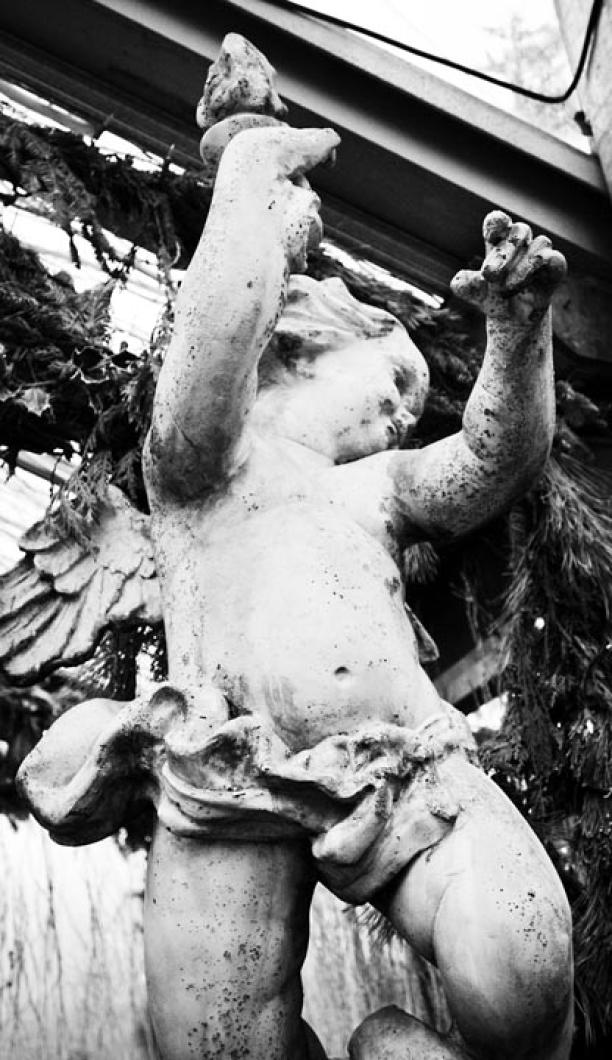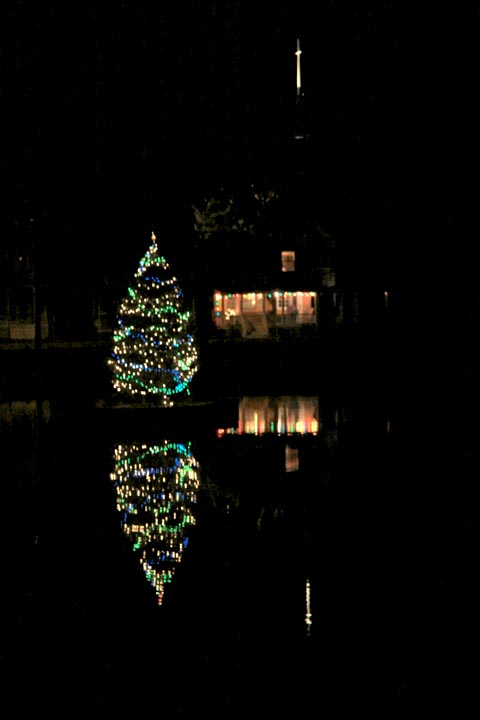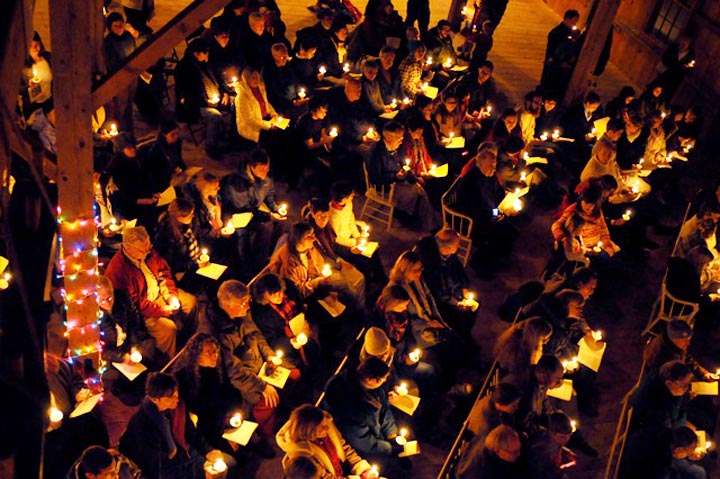I was touched when I was asked to write this year’s Christmas message for the Vineyard Gazette. Maybe because I didn’t suspect it — my wife, Colleen, and I have been here only about a year, and I know there are other thoughtful voices who might have contributed something wise and wonderful to the great people of the Vineyard at this holy and special time of year, a time so many of us hold so dear, for so many reasons. My heart is glad for it.
Honestly, I’ve only been a priest just under six years, and so my chances to say what I’d like to anyone who’d care to listen about Christmas, that night or day, that point in time when Christians remember an actual, historical baby was born — a man called Jesus — has been basically relegated to faithful hearts who come to church to hear the message. For me, that has basically been Episcopalians, although I am more than aware that our congregations, probably little different than others, at least in the Christian faith tradition, regularly consist of seekers and learners from all kinds of other faith traditions. This is probably the first time I’ve had the chance to say to everyone — whatever they consider themselves, with respect to God, or to no God at all — just what Christmas means to me, and, I hope, to many, many others.
It is all about God affirming us in our humanness, a message I think every one of us, at least in some way, can embrace. And not only that: it marks a critical point in the way that God is making everything right again, not only with and for us, but through us.
For all the religious language so many of us have heard, I’m often reminded that over-religiosity can get in the way of what it is our faith traditions are setting out to do. For some reason, God (and I guess I do believe that a really high percentage of people around the world believe in God, or some sort of higher power, for reasons hard to explain) has made things the way they are. People are different from all other sorts or other kinds of life our unique planet teems with. In our search for meaning (that is, the answer to the question we are almost always asking ourselves, “Just why are we here, and are all our hopes and struggles, and joys — and loves — without a greater purpose?”), we are left with all sorts of possible choices. It is easy to get confused. In our hurts and brokenness, our confusion may contribute to the sense of the loss of hope, for us, and for our world. Could it be possible any God would create all this and have so much of it involve suffering, in all its forms? Hunger, fear, injustice, oppression? Exclusion, anger, resentment and abuse? Loneliness and marginalization? At what point do we stop caring, and caring for others, and for our world?
It is at this point in our thinking that the religions of the world can come to our rescue. We all need to adopt some critically discerned paradigm for the way the world works in order to function, some world view or perspective we can bring to the stimuli that evokes our response and frames our experience. There are all sorts of important programs for learning and understanding that can occupy our minds, excellent ones, I might add, such as the sciences, so we might learn about how our world is and how it works: politics, economics, medicine, things like that; and literature and the arts, and of course, music — endeavors that point up the greatness of the human spirit. But only one — religion and theology — pays strict and serious attention to our relationship and understanding of God.
We might say we have been made to be spiritual beings. This is incredibly important for all of us to acknowledge, and to pay attention to. We think in ways beyond all other animals, or at least in uniquely different ways; we laugh, we cry, we create, we imagine, we reason, we love. Within and, many think, at the center of all that, is spirit. There is a character to our life that transcends all our attempts to name it, define it, calculate it, quantify it. I think musicians, artists and poets strike us there, in that space, and we hearken to it.
And it is in that space that many religious traditions, including mine, speak to us, and help us. It is the space of possibility and change; of hope and ultimate trust, trust that the God who so lovingly created us and continues to sustain us, will always love us. For those of us blessed by faith, caught by it, perhaps even unawares, life is never the same again. And for those of us who may be seeking meaning, or wondering or doubting their own faith, our religious traditions are there as a help for us. The Jesus I know would ask, invite us, to follow our faith, even when we’re not sure whether we have any at all, or if we are skeptical. Why would God inform us through reason and experience alone?
As Christians all over the world celebrate the birth of the new baby Jesus (whose name means “the one who saves”), we pay attention to the great and wondrous mystery we call life, and love; we recall our own dreams and visions for a better world, one in which all of us can love each other for the invaluable, God-given gifts we all are. And we thank our God for the gift of light and love in that little manger, the one who is, even now, at work in this world, reconciling all of us to each other, and all of God’s creation, to God.
God bless us, every one. Merry Christmas.
The Rev. Vincent G. (Chip) Seadale is rector of St. Andrew’s Episcopal Church in Edgartown.







Comments (2)
Comments
Comment policy »